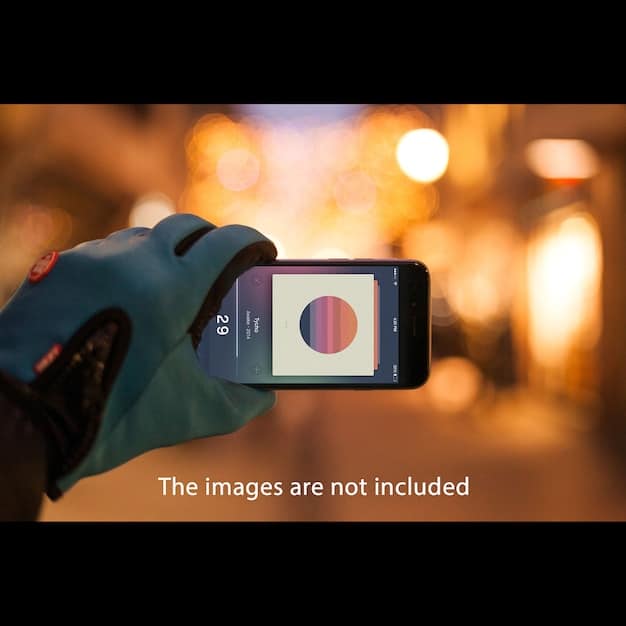Podcast Interview Follow-Up: Boosting ROI in the US Market

Podcast interview follow-up is crucial for nurturing relationships and maximizing return on investment (ROI) within the competitive US market, enhancing brand visibility and fostering long-term partnerships.
Have you ever wondered how to truly capitalize on your podcast guest appearances? Mastering the art of podcast interview follow-up is key, especially when aiming to nurture relationships and significantly boost your ROI in the dynamic US market. Let’s explore strategies that not only make a lasting impression but also convert connections into tangible success.
Why Podcast Interview Follow-Up Matters
Following up after a podcast interview is more than just good etiquette; it’s a strategic move that can dramatically impact your brand’s visibility and your bottom line. In the US market, where competition is fierce, making a memorable impression is crucial.
A well-executed follow-up can transform a one-time appearance into a long-term relationship. Let’s delve into why this practice is often overlooked and how to harness its power effectively.
Building Stronger Connections
Following up shows you value the host’s time and the platform they provided. It strengthens your connection with the host, potentially leading to future collaborations or referrals.
Extending Your Reach
A thoughtful follow-up can encourage the host to share your content further, expanding your reach to their audience and beyond.
- Reinforce your key messages.
- Show appreciation for the opportunity.
- Open doors for future collaboration.
Effective follow-up isn’t just about sending a thank-you note; it’s about initiating and nurturing a professional relationship. By solidifying the bond created during the interview, you set the stage for potential partnerships, endorsements, and further opportunities to expand your influence in the US market.
Crafting the Perfect Thank-You Note
The thank-you note is the cornerstone of any effective follow-up strategy. It’s your opportunity to reinforce your gratitude and make a lasting positive impression. But what distinguishes a generic thank-you from one that truly resonates?
Personalization is key. Generic thank-you notes are easily forgotten, but a personalized message demonstrates that you were genuinely engaged in the conversation and value the host’s insights.

Personalization is Key
Reference specific points from the interview to show you were an active and engaged participant. Mention a particular insight or anecdote that resonated with you.
Timing is Everything
Send your thank-you note within 24-48 hours of the interview airing. This ensures it’s timely and relevant.
- Use the host’s name.
- Acknowledge a specific point from your conversation.
- Express genuine appreciation for their time.
A well-crafted thank-you note goes beyond mere politeness; it’s a strategic communication tool that solidifies your connection with the podcast host and their audience. By making your message personal and timely, you reinforce your brand’s values and commitment, which ultimately drives ROI in the US market.
Leveraging Social Media for Amplification
Social media is a powerful tool for amplifying your podcast interview and engaging with a wider audience. It allows you to extend the conversation beyond the initial broadcast and create buzz around your appearance.
Promoting your interview on social media not only increases its visibility but also provides opportunities for interaction and feedback. Let’s explore strategies to effectively leverage social media for podcast interview follow-up.
Sharing is Caring
Share the podcast episode on all your social media platforms. Use engaging captions to entice your followers to listen.
Engage with the Host
Tag the host and the podcast in your posts. This shows respect and encourages them to reciprocate.
Utilize Relevant Hashtags
Incorporate hashtags related to your industry, the podcast’s theme, and the US market to reach a broader audience.
Sharing is another way to strengthen your relationship with the podcast host, it sends them a notification and will most likely incentivize them to share your content as well, thus resulting in more reach and visibility.
Turning Listeners into Leads
One of the primary goals of participating in podcast interviews is to generate leads and drive tangible business results. But how do you effectively convert listeners into paying customers?
Strategic call-to-actions (CTAs) are essential. A compelling CTA can guide listeners to take the desired action, whether it’s visiting your website, subscribing to your newsletter, or making a purchase.

Crafting Compelling CTAs
Develop clear, concise, and compelling CTAs that resonate with the podcast’s audience. Make it easy for listeners to take the next step.
Offer Exclusive Content
Provide a special offer or exclusive content for listeners who visit your website or subscribe to your newsletter.
Use Analytics to Track Your Results
Monitor your website traffic, lead generation, and sales to measure the ROI of your podcast appearances.
- Direct listeners to a dedicated landing page.
- Offer a free resource or consultation.
- Track your results to refine your strategy.
By utilizing strategic CTAs and tracking your results, you can effectively transform interested listeners into valuable leads and loyal customers. This data-driven approach ensures that your podcast appearances contribute directly to your bottom line, maximizing your ROI in the US market.
Nurturing Long-Term Relationships
The benefits of podcast interview follow-up extend far beyond immediate lead generation. Nurturing long-term relationships with podcast hosts and their audiences can lead to sustained growth and increased brand loyalty.
Consistent communication and engagement are key. Maintaining a regular dialogue with podcast hosts can open doors to future collaborations and opportunities. Engaging with their audience can foster a sense of community and brand advocacy.
Stay in Touch
Continue to engage with the host and their audience on social media. Share their content, comment on their posts, and participate in their communities.
Offer Value Beyond the Interview
Provide ongoing value to the host and their audience by sharing relevant industry insights, resources, and updates.
By fostering a sense of community and brand advocacy, you create a loyal following that not only supports your business but also actively promotes your products or services within the US market. This long-term approach is critical for sustained success and maximizing ROI.
Measuring Your ROI
To truly understand the effectiveness of your podcast interview follow-up efforts, it’s essential to measure your return on investment (ROI). This involves tracking key performance indicators (KPIs) and analyzing the data to identify what’s working and what’s not.
Tracking website traffic, lead generation, and sales are essential. Analyzing these metrics will provide valuable insights into the impact of your podcast appearances on your bottom line.
Key Performance Indicators (KPIs)
Track website traffic, lead generation, sales, and social media engagement to measure the impact of your podcast appearances.
Analyze Your Data
Identify which strategies are most effective in driving ROI and refine your approach accordingly.
By tracking these KPIs, you can make informed decisions about your podcast strategy and refine your approach to maximize ROI. This data-driven approach ensures that your efforts are aligned with your business goals, leading to sustained growth and success in the US market.
| Key Point | Brief Description |
|---|---|
| 🤝 Networking | Build connections with hosts for future opportunities. |
| 📢 Social Media | Share the interview to amplify the reach. |
| 🚀 Lead Generation | Use CTAs to attract listeners. |
| 📊 ROI | Track results to measure success. |
FAQ
▼
Ideally, send your thank-you note within 24-48 hours of the interview airing. This shows your appreciation is timely and sincere, increasing the likelihood of a positive response from the host.
▼
Personalize it by referencing a specific point from the interview, thanking the host by name and acknowledging their insights. This demonstrates you were fully engaged and value their contributions.
▼
Share the podcast episode, tag the host and podcast, use relevant hashtags, and engage with comments. This expands visibility and invites conversation, promoting the insights from the interview.
▼
A compelling CTA is clear, concise, and directly links to a desired action, such as visiting a landing page or subscribing. It should also highlight the benefit of taking that action to increase engagement.
▼
Track key performance indicators (KPIs) such as website traffic, lead generation, and sales. Analyze this data to identify successful strategies and refine your approach for improved results and higher ROI.
Conclusion
Mastering the art of podcast interview follow-up is essential for nurturing relationships and maximizing ROI in the US market. By crafting personalized thank-you notes, leveraging social media, turning listeners into leads, nurturing long-term relationships, and meticulously measuring your ROI, you can significantly enhance your brand’s visibility and achieve lasting success.





